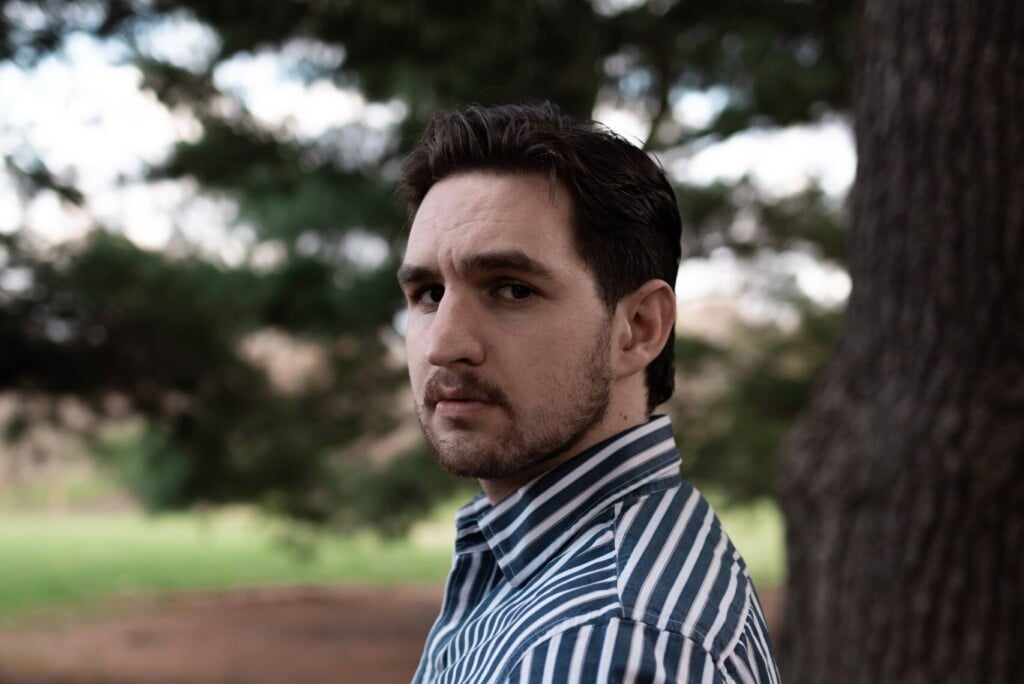Behind the Mask
Masks were made to disguise, and from ancient times people have associated the mask with deceit and vice. Today, masks bring to mind thieves, Halloween and scary metal groups, suggesting this item’s reputation has improved little. But don’t fear Lagbaja, the troupe of twelve touring musicians from Nigeria that’s on its first extended foray into the United States in support of its U.S. debut, We Before Me. The mask worn by Lagbaja’s frontman isn’t intended to frighten, though the political conditions that inform the music are nightmarish.
“In our culture, under our philosophy of life, the mask really means a lot and stands for everyman,” explains Lagbaja, the enigmatic leader of the band with the same name. In the Yoruba (one of the three largest ethnic groups in Nigeria) language, the band’s name means “somebody, anybody, nobody in particular.” In keeping with this definition, any number of people might perform wearing Lagbaja’s mask on any given night, although the Lagbaja carrying on this conversation insists he is the original.
Still, the identity of the person behind the mask is much less important than the message delivered by Lagbaja as a whole. Nigeria has been a “free” nation only since 1960, spending the majority of those forty-plus years under the rule of quickly toppled military despots (seven coups d’état have taken place since 1966) who supplied fat salaries for their cronies while keeping the rest of the country living well below the poverty line. According to the World Bank, Nigeria’s per capita income amounted to $240 in 1997.
Such issues remain hot topics in Lagbaja’s music, but things got easier for the group after the 1999 election of the civilian Olusegun Obasanjo. “I no longer have a fear of being suddenly thrown in jail, a fear I lived under for a long time under the last regime,” Lagbaja says, recounting the reign of the brutal Sani Abacha. Still, although life has gotten nominally better for its members, Lagbaja doesn’t plan to abandon its socially conscious lyrics.
“Our songs will still be political,” promises Lagbaja. “The last song on We Before Me [‘Suuru Lere,’ a plea for patience with democracy] is mostly about what has happened since the new democratically elected government got into power. We’ll keep doing that because the whole concept of Lagbaja is that the mask is being used as a symbol that represents the working class, the common man, but you cannot talk about their troubles all the time.
“I have a philosophy,” Lagbaja continues, “that in spite of all the problems and troubles that we pass through, we must find time to have a good time because life goes on. So as much as we sing about social issues and political trouble, we also have a couple of songs that are just about making people happy.”
But even when addressing hard issues, Lagbaja can make people happy with its music. Its loose fusion of the juju, the African style made famous by Nigerian “King” Sunny Ade that uses traditional Yoruba drums and Western string instruments, with Afro-beat, the music popularized by fellow Nigerian Fela Anikulapo (Ransome) Kuti that combines the guitars and horns of uptempo West African highlife with African-American jazz and funk, allows Lagbaja to create some irresistible grooves that appeal to anyone — even groove-repressed Caucasian-Americans.
“The people who aren’t of African descent in the audience tend to stand back a little at first,” Lagbaja says of the group’s first shows in Europe and America. “They don’t really know what to expect with all these people onstage and this person in a mask, but once we get started and get the groove going, they usually start to feel it and get pretty into the show. I mean, they’ve had several African bands that they may recognize from Nigeria, like Ade and Kuti, but then there are some things we do that they have never seen before. It’s always a shock to them when we make them dizzy, because our music goes back in this timeless Yoruba tradition. You should see it happen, though. When they get it, it’s a beautiful thing.”
Just as non-Africans can relate to the universal groove concocted by Lagbaja, the man himself sees valuable parts of that African tradition in Western music, most notably rap. Not that Lagbaja has entertained the idea of using more Western instruments himself — guitar, bass, saxophones and keyboards are the only non-African instruments used — or that he identifies the rap-style touches as such. “We don’t use rap in our music,” he corrects. “That’s really more of a traditionally Yoruba chant, done in a style that has been around forever. Here they call that rap, but in Africa it’s just always been a part of the music.”
Regardless of such semantic issues, he appreciates the musical similarities that people of African descent have created from different corners of the globe. To Lagbaja, all these people are represented by the mask. “[Here] they talk about racial profiling, minority rights, protest, all these issues that affect their culture specifically, but those issues are things any African can relate to.”




